Products include roots and barks, honey, beewax, soapnut, wild gooseberry, Kokum, Rampatri
Mysore/Mysuru: The COVID pandemic has played havoc in the lives of forest dwellers and they have lost access to the local markets where they could sell rare and exquisite forest produce. However, an initiative by the Federation of Large Area Multipurpose Societies (LAMPS) has come to the aid of tribals residing in forest regions.
The initiative has enabled them to sell agriculture and forest produce to cities like Mysuru in a mobile vehicle. LAMPS procures products from the tribals and sells in cities thereby giving a fair share of income for their produce. A mobile vehicle has been refurbished for this purpose and the vehicle will market the products at doorsteps.
The initiative, launched yesterday in Mysuru, ensures that tribals get a fair value and earn their livelihood. The core objective of LAMPS is to encourage the tribal communities to enhance their financial status by carrying out livelihood activities.
The mobile vehicle has been altered and designed in such a way that the forest produce is collected and displayed inside to facilitate sales. LAMPS has spent over Rs. 20 lakh on the vehicle which will go around cities, selling forest products.
It will be parked at places where usually people gather in large numbers. The mobile vehicle will move to other districts too depending on the response.
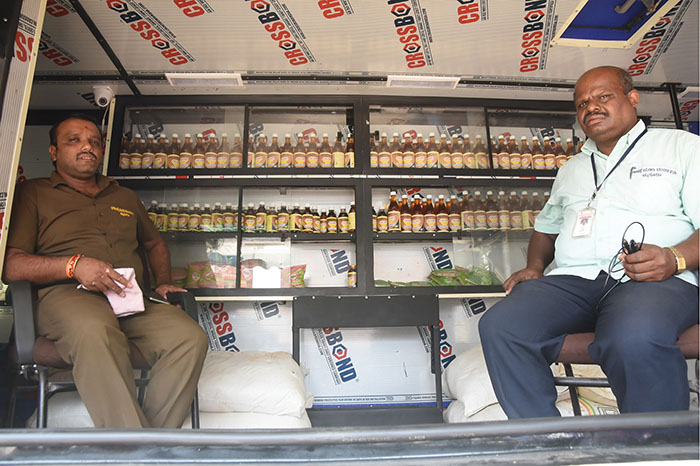
17 products at one venue
LAMPS Mysuru has the jurisdiction over tribal hamlets in Mysuru, Chamarajanagar, Dakshina Kannada, Udupi, Hassan, Kodagu, Mandya and Udupi. Speaking to Star of Mysore, LAMPS Federation Managing Director G.R. Vijay Kumar said that the 17 products are sold in the cities and the products have high economic value. This will bring auxiliary income to the tribals.
The indigenous forest-dwelling people collect a range of wild resources that include leaves for medicine, roots and bark of the tree for food, oils, medicine, tubers, honey, beewax, tree resin, fruits such as jackfruit, gooseberry and soapnut. The hand-made products sold at LAMPS vehicle include honey, beewax for personal care, medicinal saps from certain trees, herbal hair oils, rare wild foods, kokum, dhoop powder and rampatri (an extremely aromatic spice).
No role of middlemen
“Earlier, there was a scenario where middlemen used to exploit the tribals. Agents roamed in rural areas to procure forest produce from tribals at a low price and sell those in urban areas and to companies at a much higher price. Now tribals can sell the produce directly to LAMPS and there will be no role of middlemen,” Vijay Kumar said adding “Though the business is in nascent stages, the number of orders is increasing. There is special demand for forest honey, soapnuts and rampatri.”

No over-exploitation
Vijay Kumar added that they will have strict control on the amount of forest produce they gather each year to ensure that the community’s resources are not exploited. “We have set up the initiative with an aim to ensure that all produce harvested from the forest is done sustainably, and not on a commercial scale. We will not collect produce from the forest-dependent communities and over-exploit the resources,” he explained.
Forest produce is purchased at MSP (Minimum Support Price) based on the directive of the Central Government and 75 percent of the price goes to tribals and 25 percent goes to LAMPS. The forest produce is procured from H.D. Kote, Biligiri Ranganatha Hills, Dandeli, Uttara Kannada, Chikkamagalur, Kodagu, Koppa in Chikkamagalur and other tribal-concentrated areas.



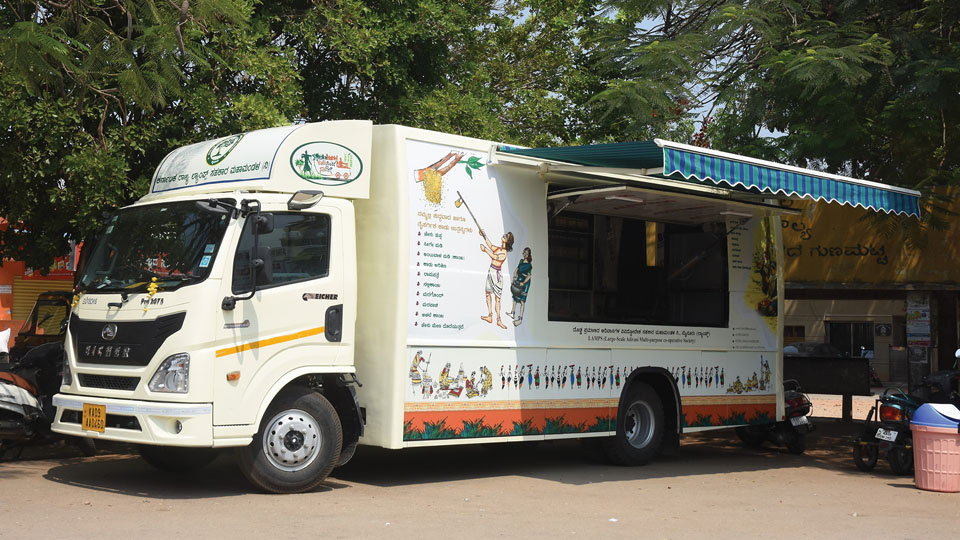
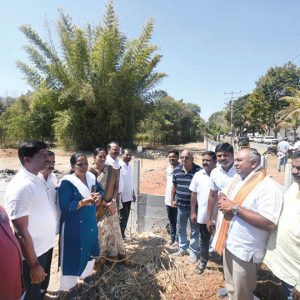
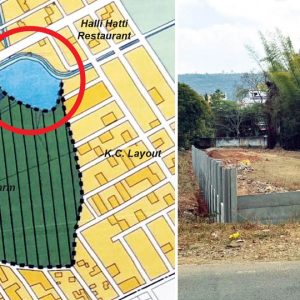
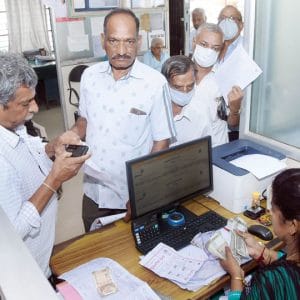

its commendable to write an article but you have neither mentioned contact details or address. Please do the same
“”tribal hamlets in Mysuru, Chamarajanagar, Dakshina Kannada, Udupi, Hassan, Kodagu, Mandya..”
Do they still exist now?
I have seen them in 1950s and 60s, when there were thick forests around Mysore and Chamarajanagar. Just 10 years later in 1970s, most of them started disappearing as housing and other developments cleared plenty of them, as India’s population was increasing at a very fast rate. The car culture that soon followed must have ensured the construction of highways, clearing yet more of these forests.
The above places have seen massive developments in recent decades, and forests have become a rarity.
In regards to these products, who certifies them as safe to use? Who also certifies their quality?
When it comes to India, no product is safe from adulteration.
May I know the place where vans are stood